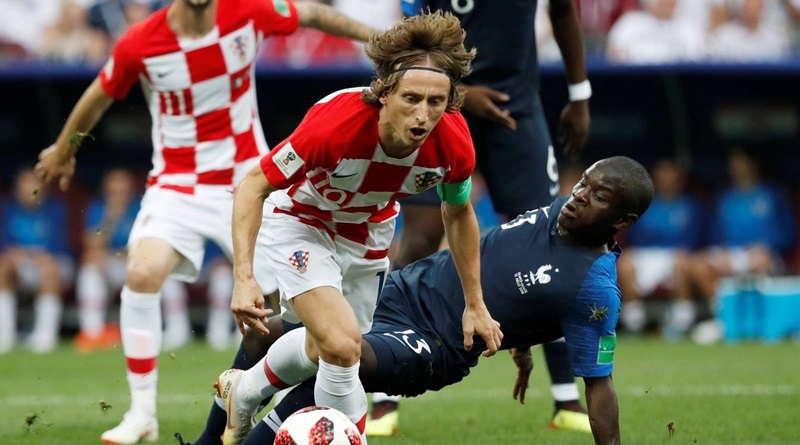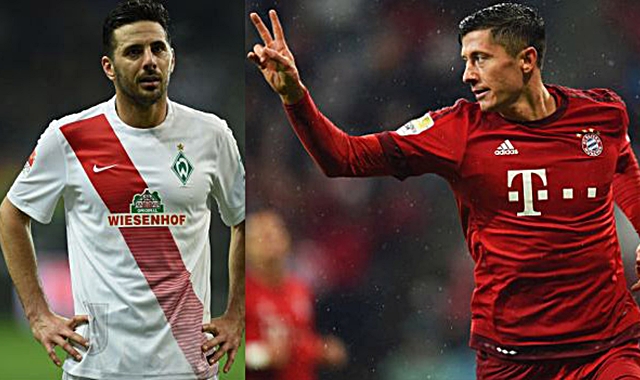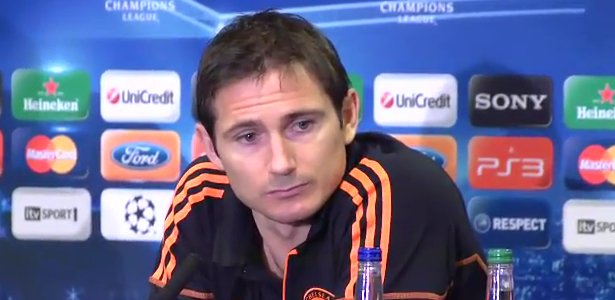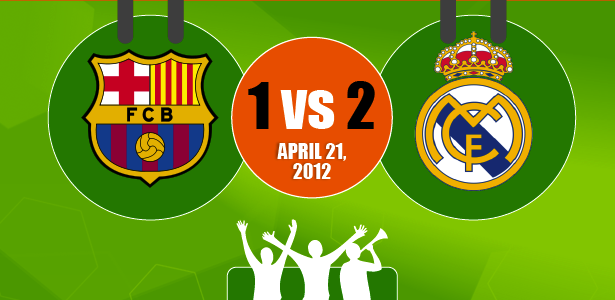2018 FIFA World Cup: 5 MORE things we learned from tournament

The 2018 FIFA World Cup has finally come to an end, and it was certainly a tournament that fans will be talking about for a long time. We have now to wait four more years for the latest edition of the world’s biggest footballing competition, but until then, let’s have a look at some key takeaways from the big show in Russia.
In part one, Germany’s woes, France’s triumph, England’s change in identity, Spain being exposed, and minnows biting back was the focus. Here, in part two, we’ll take a look at Croatia’s impressive run, Poland’s disappointment, and the woes of African sides, among others.
6. Croatia use “lack of recognition” as motivational factor
No one, save for probably Croatians, gave the Vatreni much of a shot at this summer’s World Cup. Whilst stacked with an impressive range of talent, including Luka Modric, Ivan Rakitic, and Mario Mandzukic – who have won six Champions League titles between them, as well as Inter duo Ivan Perisic and Marcelo Brozovic, Zlatko Dalic’s side struggle through qualifying. In fact, the Vatreni only sealed its spot after beating Greece in a two-legged playoff, but before then, Croatia had struggled, failing to beat Turkey and Iceland and shockingly drawing with minnows Finland.
Croatia was also inconsistent in its friendly games, so the general feeling about this side was that it would be fortunate to get past the round of 16 – even if it got out of its group. Remember, Argentina was viewed as among the tournament heavyweights, and Croatia was in a very tough quartet along with Nigeria and Iceland.
Well, this lack of recognition certainly motivated the Balkan side. After winning its group, it successfully slogged through three extra-time matches against Denmark, hosts Russia, and England. But it was the game against the Three Lions that Dalic’s men were more fired up, as they were apparently offended by the arrogance of the English media, and perhaps were even riled up with the English banter song “It’s coming home”. Several of Croatia’s players did not hesitate in throwing jabs at the English and expressing their frustration for the lack of respect shown, including the usual quiet Modric.
With the backing of the entire nation, Croatia certainly did not look like underdogs against France, nor did the team appear to be intimidated by featuring in its first World Cup final. Despite losing 4-2, the team was still welcomed home as deserved heroes. Indeed, Croatia used being overlooked to its full advantage to pull off one of the most notable showings at a World Cup and truly upset the odds. Fair played to them.
7. Robert Lewandowski arguably the most disappointing star at the tournament
Some may feel that no, Lewandowski wasn’t the worst star at the tournament, and that dubious honor should go to Lionel Messi. However, at least Messi scored a goal and was directly involved in two others, despite failing to impress against Croatia and missing a penalty against Iceland.
Lewandowski was the highest-scoring European player in qualifiers and has consistently been a top goalscorer for Bayern Munich since arriving in 2014. As such, this was supposed to be his chance to shine at the biggest tournament in football and help Poland make a case as to why they should be taken seriously. The team, after all, was ranked 8th in the world – ahead of others like Croatia (20th), Spain (10th), and England (12th).
Furthermore, thanks to this high ranking – which has raised numerous eyebrows – Poland benefitted from a pretty comfortable group, with Colombia, Japan, and Senegal for company. But Lewandowski wasn’t able to take advantage as his team finished bottom of this quartet. Zero goals, zero assists.
At nearly 30, he’s not guaranteed to feature at another World Cup, as Poland also was not challenged much in qualifiers to get to this point. Next up will be trying to get Poland to the EURO 2020 tournament. Lewandowski also reportedly is quite frustrated with life in Munich and had hoped to use this World Cup to put himself in the shop window – in particular for Real Madrid, where he apparently has been desperate to move to for the past season.
He may get a move, though. But it doesn’t seem likely to Real Madrid, who have been linked instead with Eden Hazard and don’t be surprised if they try to snatch Kylian Mbappe, too. Or, he could find himself back in Munich at the beginning of the upcoming season, but all in all, it was a highly disappointing showing from a player who is viewed as among the top no. 9’s on the planet.
8. Belgium’s golden generation has finally made its mark…but can still improve
With players like Romelu Lukaku, Kevin De Bruyne, Eden Hazard, Dries Mertens, and Thiabut Courtois in their ranks, Belgium is a side wonderfully blessed with star players. The fact that Roberto Martinez could leave Roma’s Radja Nainggolan at home – who’s arguably one of the best midfielders in Serie A – shows that the Red Devils have more key personnel than they can handle.
In short, this group is regarded as this nation’s “Golden Generation” – much like that of Croatia. However, unlike the Croatians, Belgium is a top ten side as per the ranking, so much more was expected of Martinez’s side this summer in Russia – especially after it cruised through qualifiers without breaking a sweat.
Belgium didn’t disappoint, at least until it met France. Before then, the Red Devils had survived a huge scare against Japan, but rebounded well to take down Brazil. However, against Les Bleus, its key players were unable to deal with France’s defensive approach, and both Courtois and Hazard complained about the “anti-football” their opponents played. It reeked of sour grapes, rather than taking responbility for failing to find a way past Didier Deschamps’s side. But overall, having finally gotten a medal at a major tournament for the first time since EURO 1980, overall, Belgium’s golden group finally made its mark, and will be looking forward to go one step further at EURO 2020.
9. Argentina World Cup disappointment not an ultimate shock
2014, 2015, 2016. Argentina and Lionel Messi reached the World Cup final, and two Copa America finals, only to come up short. Messi abruptly announced his retirement from international football after missing a spot-kick at the 2016 Copa America Centenario, only to reverse that decision and come back into the fold to help La Albiceleste salvage a World Cup berth.
Argentina, however, was unable to capitalize on this and crashed out in the round of 16. Many were surprise, but a closer look at Jorge Sampaoli’s side should alleviate some of that shock. Remember, the team needed a hat-trick from Messi against Ecuador to get to Russia, and there was problems from the start, even before La Albiceleste kicked a ball at this tournament. First choice goalkeeper Sergio Romero went down injured, while the ex-Chile manager again opted to snub Inter’s star Mauro Icardi despite being the top goalscorer in Serie A.
If the Icardi snub and the Romero injury weren’t major blows, Sampaoli’s tactical selections didn’t help as Argentina commenced its group stage campaign. The team was outplayed and outclassed as it was humiliated by Croatia 3-0 on matchday two, and despite scraping by Nigeria to sneak into the round of 16, the general feeling was that Argentina was just hanging by a thread.
Sampaoli dropped the ball again against France, opting to play Franco Armani – a man who only made his debut against Nigeria against France in the biggest game of his international career. It didn’t pan out, but that was hardly surprising. Argentina had been found out by Iceland and Croatia, and was nearly dumped out by Nigeria, so despite staging a late rally, the two-time World Cup winners, with arguably one of the top two players in its ranks, was unable to do much about it. Don’t be surprised that, after this disappointing performance, Messi opts to hang up his boots for good.
But then again, Jorge Sampaoli has stepped down, so who knows what’ll happen next.
10. African sides dealt a difficult hand
This tournament was notable for two additional reasons. First, there was no African side in the round of 16, and second, no South American sides in the final four. But one, perhaps two, African sides will definitely feel the most aggrieved. The first, Nigeria, can make a clear case of being cheated by the ref, by VAR, what have you. Without a shadow of a doubt, Marcos Rojo committed a handball and got away with it – only to go on later and score the game-winner to knock Argentina out of the competition.
That handball was notable as we all saw several other occasions where a player had his hand in an “unnatural position” and was penalized. Just look at the case of Gerard Pique against Russia, or Ivan Perisic against France. But somehow, the referee and VAR opted not to penalize Rojo and Argentina was truly fortunate for that.
Meanwhile, Senegal, who was hoping to make a big splash in only its second ever World Cup ended up heading home early – but through no real fault of its own. For the first time, we saw a team penalized for too many yellow cards. Japan, meanwhile, lost to Poland and still got through thanks to being “nicer” on the pitch. And once they found out they were through, they made no attempt to press Poland, for fear of picking up more yellows or, more likely, conceding a goal which would have knocked the Samurai Blue out – regardless of their more “polite play”.
Tunisia, Morocco, and Egypt never really stood a chance. In the case of Egypt, the injury to Mohamed Salah – as the result of Sergio Ramos’s wrestling move – was too much to overcome. Tunisia and Morocco were simply out of their depth, as both were placed in tough groups along with England, Belgium, Spain, and Portugal.
In 2010, Ghana made it within a whisker of the semi-finals, but failed to qualify for this edition. In 2018, no African side made it out of its group. Nigeria especially looked promising, and its coach admitted that his very young team was actually built for the 2022 World Cup. So hopefully, in four years time, the teams selected to represent the continent will enjoy more success in Qatar.



